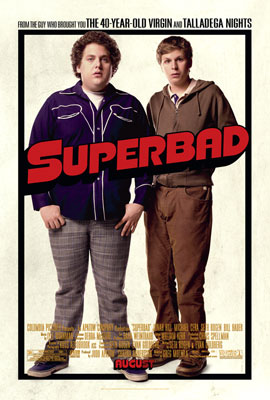Wednesday, August 17, 2005
Stoning women, children and gays ... questions for "Christian" MPs
Labour MP Ashraf Choudhary's comments on supposed "traditional Koran punishments" involving the stoning to death of adulterers and homosexuals, etc., were fairly widely reported in the media - including the Herald - and Don Brash made an oblique reference to it in his "no dirty immigrants spitting on our streets" speech: "We do not want those who ... believe that New Zealand would be a better place if gays and adulterers were stoned."
Well, who does, frankly? And does this mean gays are "mainstream New Zealanders" again?
But what about this word "belief", and the distinction between belief and action? How many of our self-identified "Christian" MPs, and we seem to have rather a lot of them lately, many of whom appear to be of the "every word in the Bible is the incontrovertable and literal word of God" variety, believe almost exactly the same thing?
Certainly Choudhary's response was fairly inarticulate and prevaricating. And certainly there's one Christian leader in New Zealand - the indomitable Bishop Whakahuihui Vercoe - who was named and shamed for making similar comments, as the tiresome Sandra Paterson points out.
But, and here's the important point, why aren't the media asking those Christian MPs - for example, those who were so full of "pro-family" bluster during the Civil Unions Bill debate - similar questions? If they accept every word in the Bible to be the literal word of God (and get them to say this bit first), then do they think the Bible is right to say:
That women should be silent and in submission in Church (Corinthians 14:34-35), should talk to their husbands in fear (I Peter 3:1-7), and must marry their rapists (Deuteronomy 22:28-29)?
That children can be dashed against stones (Psalms, 137:9), boiled and eaten (II Kings - 6:24-33); impregnated by their fathers (Genesis - 19:30-38); and stoned to death if rebellious (Deuteronomy - 21:18-21; Matthew 15:4)?
That homosexuals can have their houses destroyed (II Kings - 23:7), and may be killed (Leviticus 20: 13; Romans - 1:26-32)?
That adulterers can be killed (Leviticus 20:10)?
And finally, do these MPs hate their fathers, mothers, wives, children, and brethren in accordance with Luke 14:26?
Leaving aside questions of "context" and Biblical interpretation, I reckon you'd get some interesting answers to these questions. Whose "morality" should government be promoting, again? Perhaps best to leave such weighty issues to the Sunday Star-Times.
Well, who does, frankly? And does this mean gays are "mainstream New Zealanders" again?
But what about this word "belief", and the distinction between belief and action? How many of our self-identified "Christian" MPs, and we seem to have rather a lot of them lately, many of whom appear to be of the "every word in the Bible is the incontrovertable and literal word of God" variety, believe almost exactly the same thing?
Certainly Choudhary's response was fairly inarticulate and prevaricating. And certainly there's one Christian leader in New Zealand - the indomitable Bishop Whakahuihui Vercoe - who was named and shamed for making similar comments, as the tiresome Sandra Paterson points out.
But, and here's the important point, why aren't the media asking those Christian MPs - for example, those who were so full of "pro-family" bluster during the Civil Unions Bill debate - similar questions? If they accept every word in the Bible to be the literal word of God (and get them to say this bit first), then do they think the Bible is right to say:
That women should be silent and in submission in Church (Corinthians 14:34-35), should talk to their husbands in fear (I Peter 3:1-7), and must marry their rapists (Deuteronomy 22:28-29)?
That children can be dashed against stones (Psalms, 137:9), boiled and eaten (II Kings - 6:24-33); impregnated by their fathers (Genesis - 19:30-38); and stoned to death if rebellious (Deuteronomy - 21:18-21; Matthew 15:4)?
That homosexuals can have their houses destroyed (II Kings - 23:7), and may be killed (Leviticus 20: 13; Romans - 1:26-32)?
That adulterers can be killed (Leviticus 20:10)?
And finally, do these MPs hate their fathers, mothers, wives, children, and brethren in accordance with Luke 14:26?
Leaving aside questions of "context" and Biblical interpretation, I reckon you'd get some interesting answers to these questions. Whose "morality" should government be promoting, again? Perhaps best to leave such weighty issues to the Sunday Star-Times.
Comments:
They were some very fast quick bible verses (not full ones of course) you got there. Did you research them by reading the bible or did you pick and copy from other websites?
Have you considered believing in self or nothing as a religion?
It's always a gripe when the news media doesn't give the full detailed picture. But then again if I was a journalist I would try to summaries things within a standard length article/coverage.
Have you considered believing in self or nothing as a religion?
It's always a gripe when the news media doesn't give the full detailed picture. But then again if I was a journalist I would try to summaries things within a standard length article/coverage.
Oh come now. Haven't you people been able to separate church and state? The Afghans have done it. The Americans have not, but surely the Kiwi's can give it a go.
Sam F,
What do you mean by this?
"Have you considered believing in self or nothing as a religion?"
The dictionary definition of religion I have looked at doesn't seem to suggest that that is possible without a decent sized twist of the meanings.
"a. Belief in and reverence for a supernatural power or powers regarded as creator and governor of the universe. b. A personal or institutionalized system grounded in such belief and worship.
The life or condition of a person in a religious order.
A set of beliefs, values, and practices based on the teachings of a spiritual leader.
A cause, principle, or activity pursued with zeal or conscientious devotion."
Particularly a belief in nothing. there's no real way I can see that that is anywhere near a religious belief. And unless you believe that YOU, yourself are a god then I can't see how that could be in the ballpark of a religious belief.
Secondly, what does having a limited amount of space have to do with asking extremely obvious questions?
They are entire stories on their own surely. Not mere footnotes. There's no excuses for a journalist, which is a profession, not to act professionally.
What do you mean by this?
"Have you considered believing in self or nothing as a religion?"
The dictionary definition of religion I have looked at doesn't seem to suggest that that is possible without a decent sized twist of the meanings.
"a. Belief in and reverence for a supernatural power or powers regarded as creator and governor of the universe. b. A personal or institutionalized system grounded in such belief and worship.
The life or condition of a person in a religious order.
A set of beliefs, values, and practices based on the teachings of a spiritual leader.
A cause, principle, or activity pursued with zeal or conscientious devotion."
Particularly a belief in nothing. there's no real way I can see that that is anywhere near a religious belief. And unless you believe that YOU, yourself are a god then I can't see how that could be in the ballpark of a religious belief.
Secondly, what does having a limited amount of space have to do with asking extremely obvious questions?
They are entire stories on their own surely. Not mere footnotes. There's no excuses for a journalist, which is a profession, not to act professionally.




















Post a Comment